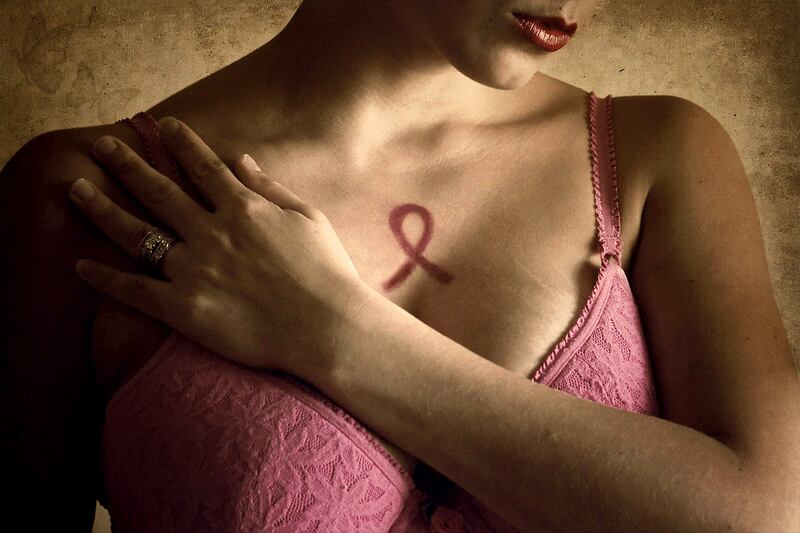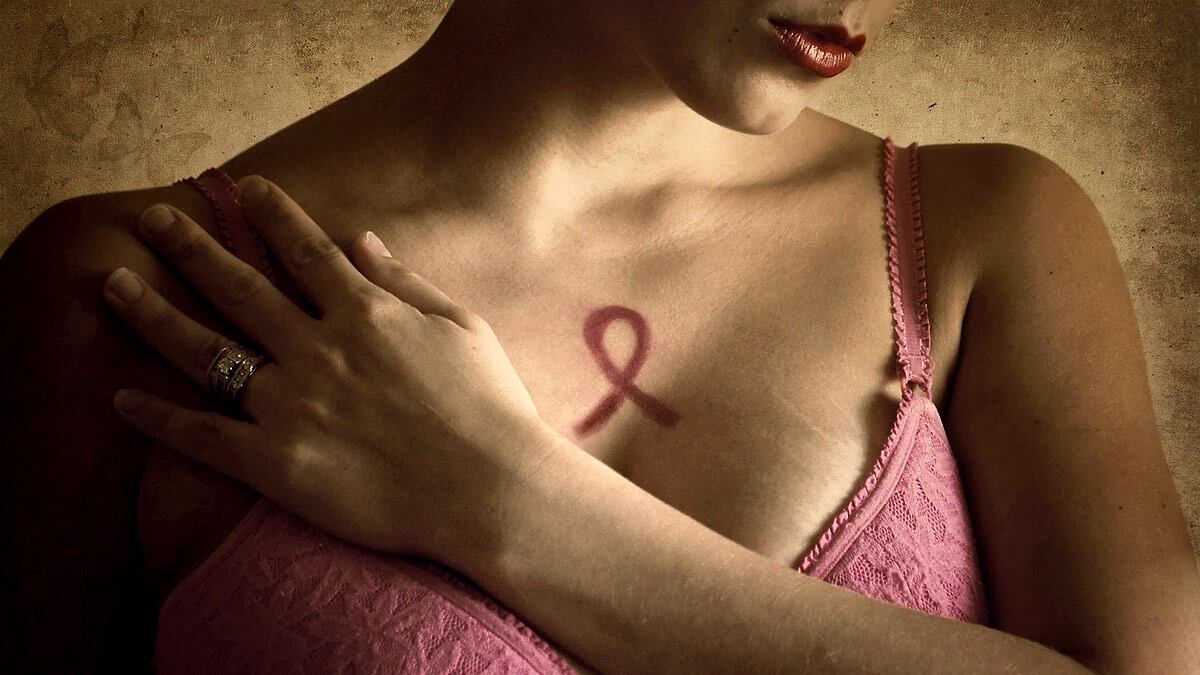Just hours before my mastectomy last year, a hospital representative talked to me about donating my tumor (and the boob it lived in) to research. She explained that my particularly aggressive cancer was unusual in a woman of my age and race, and therefore valuable for study. She assured me that when it had fulfilled its purpose, my tumor and its surrounding tissue would be respectfully disposed of.

Perhaps it was in response to my fear or the wonderful la-la drugs dripping into my vein at the time, but this statement struck me as funny. Why should I worry about respecting my tumor? It wasn’t respecting me—it was trying to kill me. But I did indeed donate it. After all, it had been chosen. And as I traveled my breast-cancer journey last year and wrote down the lessons I was learning, the importance of being chosen was one of them.
In fact, that was the top lesson—being chosen. I believe everything happens for a reason, even the bad things. True, sometimes tough challenges feel pointless. So consider this twist: what if we are specifically chosen for our challenges because we possess a unique quality to overcome them? And what if those around us learn from our example? Even better, there might be something about our challenge that could help other people. Think in terms of my bothersome tumor, now taking part in research. This concept didn’t make my breast cancer a cakewalk, but it certainly gave it more purpose.
Next on my list: fear. Sometimes things are most frightening because we don’t understand them clearly. It’s the unknown that’s the oldest boogeyman of them all. It was the unknown that caused ancient cartographers to put dragons on maps where the land ran out. They labeled the vast seas with the phrase, “Here be dragons.” They didn’t know what was there, so they determined it was all bad. Truth is, the best way to dispatch with the unknown is to make it known as quickly as possible. Not such an easy task when you’ve been diagnosed with breast cancer, a disease most of us really know very little about. Shortly after my diagnosis, I recalled a saying my mother repeated ad nauseam: “You can even eat an elephant a bite at a time.” Of course, she was right (mothers usually are). Breaking my fear into smaller, digestible portions by doing a little research each day made the whole situation more palatable. Before I knew it, I had eaten the elephant.
My third lesson: it’s just hair. Every day we’re faced with situations that appear monumental at the time: traffic jams, a slow checkout line, a delayed flight, a bad hair day. In the grand picture, though, how important are they really? Never is the answer more obvious than when chemotherapy has made its mark on your crowning glory. But there are pluses to the situation. As a bald woman, I saved hundreds of hours and thousands of dollars. I laughed at foul weather and grew to love clever hats. I wondered to myself how many days had been ruined because my hair hadn’t turned out just right. It is just hair.
Fourth, I learned something about humor. When you’re fighting a deadly disease, there are many days when you’ll be terribly weighed down. Those are the very days you must laugh. I’m one of the lucky people whose family has a humor gene. It might be our way of avoiding pain, but we’re good at making each other laugh when times are tough. Little did we know we were so cutting edge: research currently being done at prestigious hospitals nationwide, including the Mayo Clinic, found that positive thoughts release neuropeptides that help fight stress and potentially more threatening illnesses. In addition, laughter stretches our facial and abdominal muscles, and causes us to draw in more oxygen, good for our hearts, lungs, and other organs. If your family doesn’t have the humor gene, no worries. Watch funny movies. Look at goofy websites. I found a list of cancer jokes and told them regularly.
My fifth lesson was in courage. You don’t have to be rich and famous or homeless and downtrodden to be brave. Anyone can be courageous, although we don’t often give ourselves credit for being so. Courage is one of those trickle-down virtues: I see someone being courageous so I behave courageously. Someone sees me being courageous, so they’re able to do so as well. Yes, this sounds easier than it really is. But consider the elegant thoughts of Eleanor Roosevelt: “You gain strength and courage and confidence by each experience in which you really stop to look fear in the face…You must do that which you think you cannot.” She was right. When there’s no where else to go but up, what’s your choice? Be courageous.
And finally, I learned to fight to win. When you’re facing down cancer, the pot of gold at the end of the rainbow is to earn the moniker “cancer survivor.” But that title didn’t suit me. Sure, I wanted to live. But it seemed to me that fighting a fight for your life should earn you the title of “winner.” Do you think for a minute that when Gen. George Patton fought battles against the Nazis, the president commended him for “surviving?” Picture the football field and a scene in which Green Bay Packers coach Vince Lombardi is congratulated by a reporter for “surviving” a game against the team’s arch rivals, the Bears. Nope, these guys went for the win. And that’s what my fellow cancer winners are going for as well.






